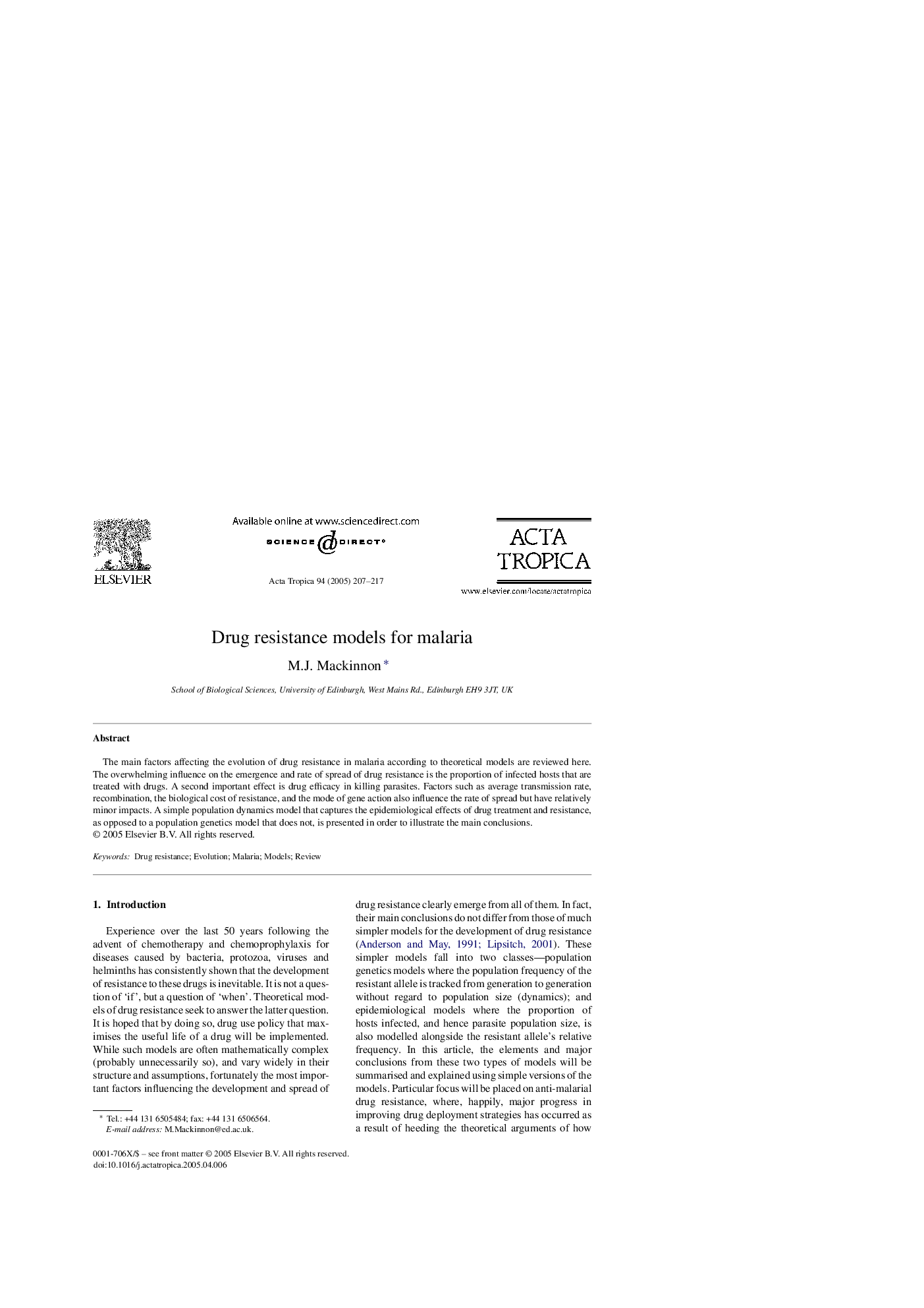| Article ID | Journal | Published Year | Pages | File Type |
|---|---|---|---|---|
| 9274304 | Acta Tropica | 2005 | 11 Pages |
Abstract
The main factors affecting the evolution of drug resistance in malaria according to theoretical models are reviewed here. The overwhelming influence on the emergence and rate of spread of drug resistance is the proportion of infected hosts that are treated with drugs. A second important effect is drug efficacy in killing parasites. Factors such as average transmission rate, recombination, the biological cost of resistance, and the mode of gene action also influence the rate of spread but have relatively minor impacts. A simple population dynamics model that captures the epidemiological effects of drug treatment and resistance, as opposed to a population genetics model that does not, is presented in order to illustrate the main conclusions.
Related Topics
Life Sciences
Immunology and Microbiology
Parasitology
Authors
M.J. Mackinnon,
